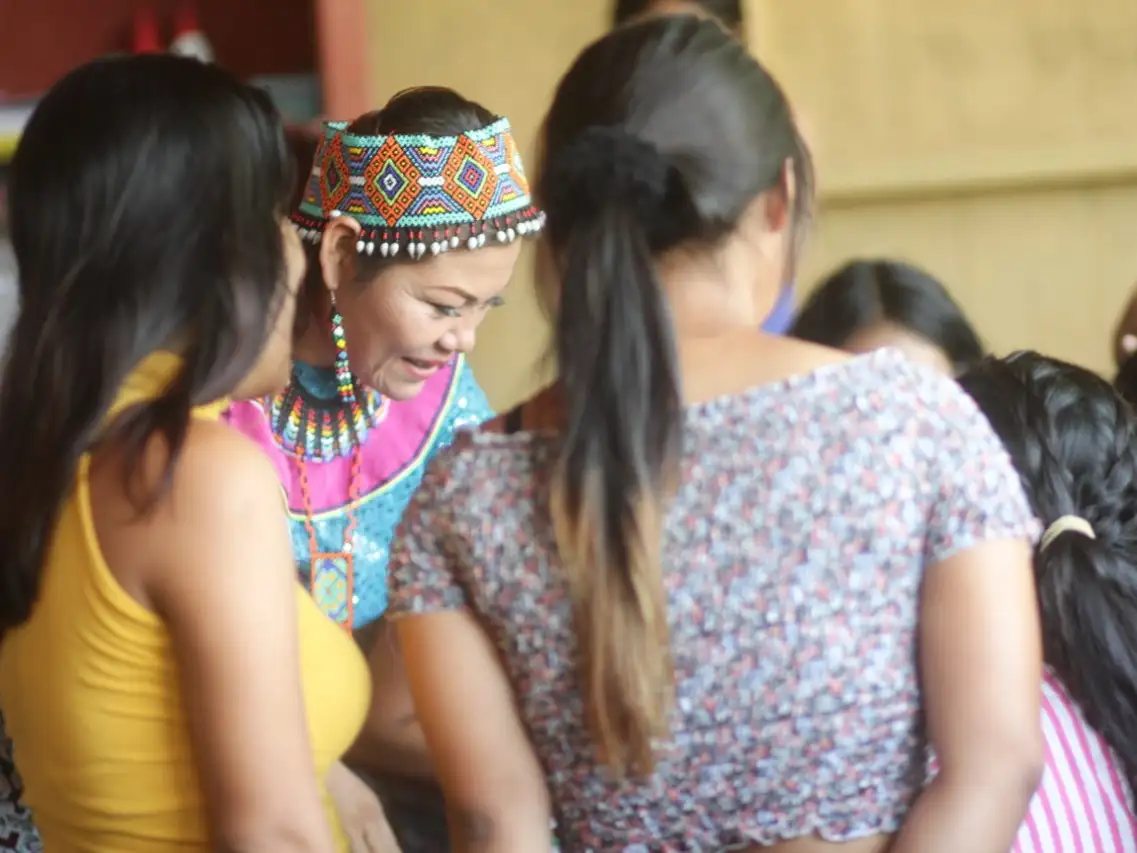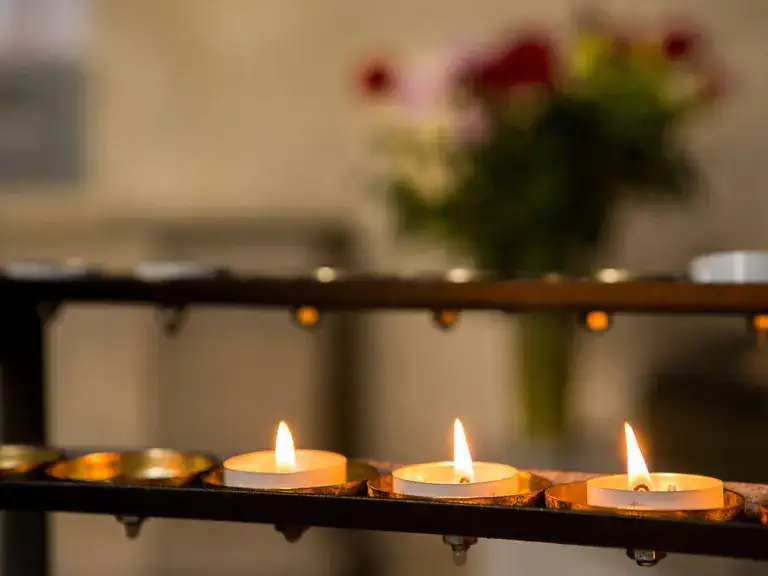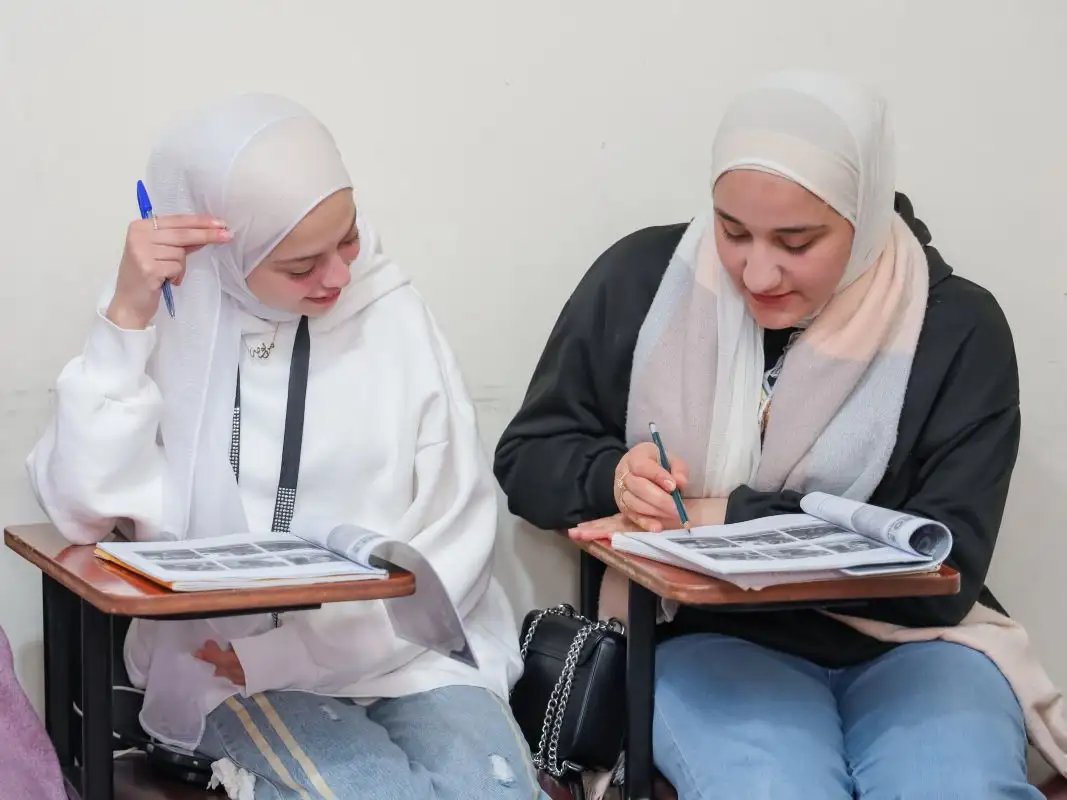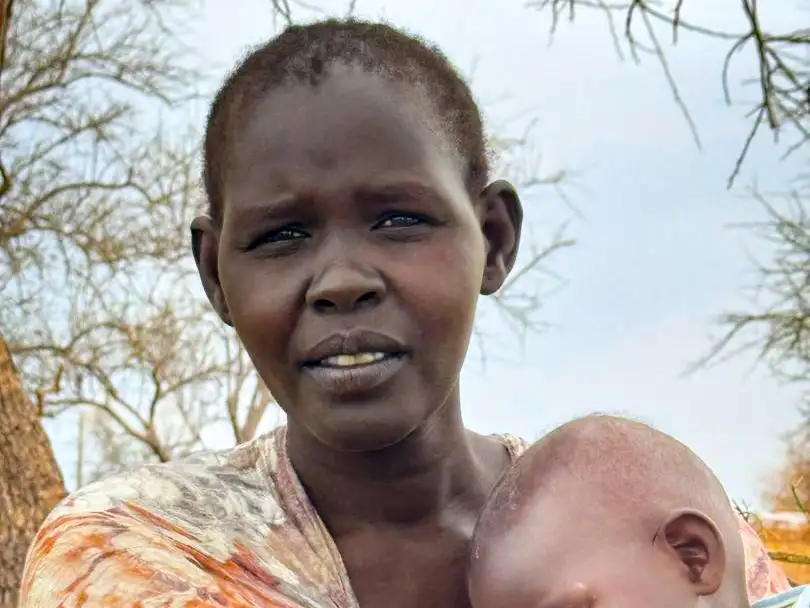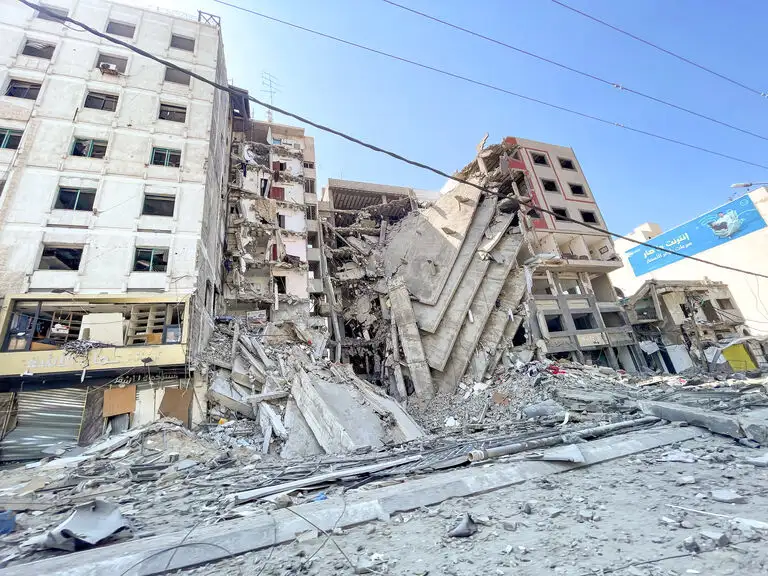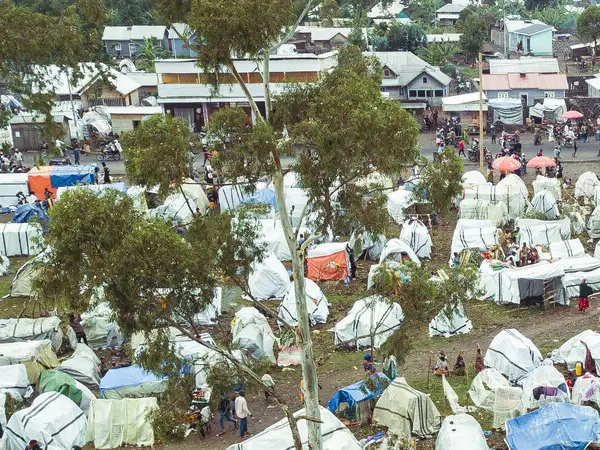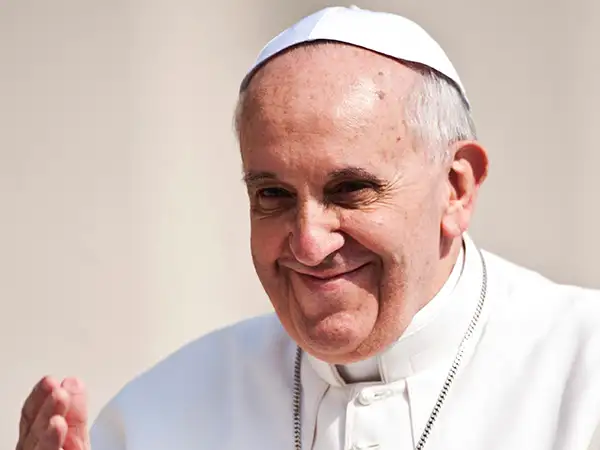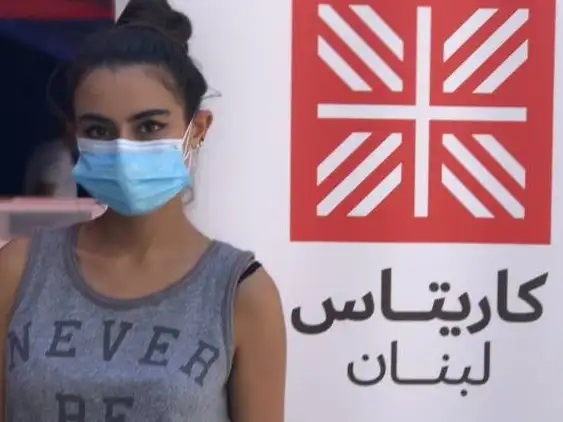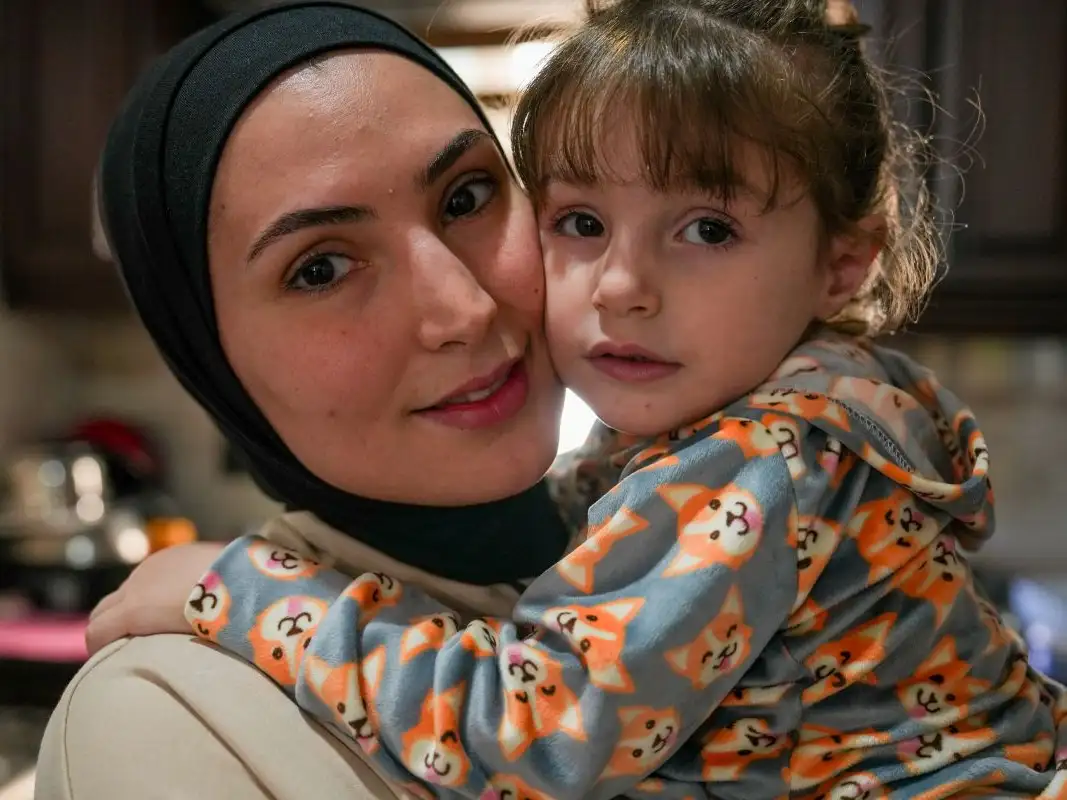

Jinane and her daughter, Palestinian refugees in Lebanon, were supported by CAFOD local partner Association Najdeh during the war between Israel and Hezbollah in 2024
Throughout the last decade, Lebanon has faced multiple protracted and devastating crises. The conflict between Hezbollah and Israel, which escalated rapidly in 2024, displaced over 1 million people and has led to widespread destruction of property and infrastructure. The number of displaced families continues to rise as a result of the current regional conflict in Lebanon, in addition to the thousands who haven’t been able to return home since the 2024 conflict.
Compounded crises – including the 2019 financial crisis (which ranked among the worst economic crises globally since the mid-nineteenth century), the Covid-19 pandemic, the Beirut port explosion of 2020 and the recent conflicts that have affected the country – have each led to a sharp increase in poverty, making vulnerabilities worse and leading to a rise in social tensions.
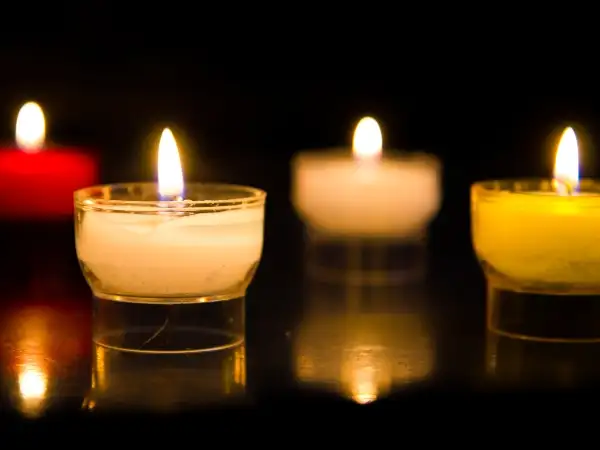
Middle East conflict: what is happening in Lebanon?
The conflict in the Middle East between the United States, Israel and Iran that began on 28 February has spread to Lebanon, initiating a new cycle of violence. Airstrikes have been reported in various areas across the country, mainly in the southern suburbs of Beirut, southern Lebanon and the Beqaa Valley, causing thousands of people to flee.
Dozens of people in Lebanon have been killed and hundreds have been injured. Thousands of vulnerable communities are currently in desperate need of shelter, food, water, medication, protection services and mental health support. Furthermore, the escalation of hostilities between Israel and Hezbollah is having a devastating impact on communities already traumatised by years of instability and conflict from 2024.
Lebanon continues to struggle to manage economic, financial, social and political crises. The country has been facing high levels of inflation, which have led to a severe deterioration in the population’s purchasing power. This situation has deeply impacted Syrian and Palestinian refugees, as well as vulnerable Lebanese. These communities are facing sharp increases in poverty and limitations on access to food, healthcare, education and other basic services.
The country also hosts high numbers of refugees who require assistance. The Lebanese government estimates around 1.5 million Syrian refugees and over 200,000 Palestinian refugees according to UNRWA. With a Lebanese population of 5.3 million, these figures make Lebanon the country with the biggest refugee-to-resident population ratio worldwide.
A better world needs all of us. That’s why CAFOD has been working alongside partners in Lebanon since the 1980s. Together, we’ve been supporting vulnerable communities through years of challenges.
Why CAFOD works in Lebanon
Lebanon faces significant challenges, from ongoing political and economic crises to the devastating Beirut explosion, and the conflict between Hezbollah and Israel in 2024.
According to the latest World Bank report issued in May 2024, poverty has more than tripled over the past decade, reaching 44 per cent of the population. The human impact remains severe: one in five people in Lebanon – around 1.17 million – are facing acute food insecurity and nine out of ten Syrian refugee households are not able to afford essential goods and services that ensure minimum living standards.
Damage to agricultural infrastructure, economic stagnation, rising inflation rates and declining humanitarian aid continue to push families to the brink. These compounded crises undermine livelihoods, make vulnerabilities worse and expose structural inequalities – and are all amplified by high levels of inflation, disruption of supply chains and the intensifying consequences of the climate crisis.
We have been working in Lebanon for over 30 years, and responding to the Syria crisis in Lebanon since 2012. We stand in solidarity with Lebanese, Syrian and Palestinians in Lebanon working for peace, justice and the elimination of poverty. CAFOD works in partnership with local organisations who are often the first responders in a crisis, and those who work towards long-term peace with justice. We support those who challenge the structures which prevent fulfilment of human rights, flourishing lives and the environment.
How we’re responding
Together, we can build a better world. In Lebanon, your donations support vulnerable communities, including Lebanese but also Palestinian and Syrian refugees. Alongside our partners, we’re addressing the urgent needs of those impacted by conflict and instability, focusing on:
Current projects
We’re working with local partners to build resilience in communities, so grassroots and community groups can respond to their own immediate needs.
For example, during the crisis between Israel and Hezbollah in 2024, community groups supported vulnerable people living in poverty with food assistance, basic goods and cultural activities. Together, our mutual aid activities have helped communities meet urgent needs, strengthened resilience and social connection, and embraced a vibrant local leadership.
Our partners work across Lebanon, providing health, protection and psychosocial support, as well as cash assistance, food and household supplies, such as blankets and fuel, to help families meet basic needs. Together, we support vulnerable Lebanese, Syrian and Palestinian refugees to ensure that nobody is left behind and to reduce social tensions between refugees, displaced people and host communities.
We’re encouraging members of marginalised communities to engage actively in society and work confidently and constructively to promote freedom of expression, respectful dialogue and to build trust, helping to foster social cohesion and tolerance in society.
We’re supporting marginalised women and girls, including Lebanese, Palestinian and Syrian refugees, who are affected by gender-based violence, discrimination and abuse. Our partners work with some of the most vulnerable people, providing counselling, therapy and awareness raising activities on women’s rights. Our partners also support women and girls to access safe shelters, where they can rebuild their lives with dignity. Together, we support women to gain vocational and life skills, building confidence and independence. We believe gender justice requires all of us. Our partners work with all groups, including men and boys, to challenge harmful behaviours and develop gender awareness and positive coping strategies.
We’re working with partners to support farmers, rural communities and civil society groups to develop agroecological techniques, climate and water management, such as hydroponics and irrigation techniques, and link urban and rural communities through income generation activities, skills development and market opportunities. Together, we foster a collective approach towards food sovereignty - linking farmers together to learn from one another, and with our partners we challenge systems and structures that exploit people, and work to provide alternative, sustainable and just solutions.
Our impact in 2024
In 2024 we reached over 30,000 people in Lebanon. Together with our partners we:
provided counselling and services to over 1,500 survivors of sexual and gender-based violence
supported local experts to help educate over 7,000 people on rights, discrimination, gender-based violence and prevention
helped over 500 young people to gain vocational skills and increased employment opportunities
reached over 600 people, including Syrians, Lebanese and Palestinians, to engage dialogue and take steps toward local peace in communities
supported over 40 victims of gender-based violence with safe shelters, empowerment, skill enhancement and income generating agriculture activities.
During the war between Israel and Hezbollah, together with our partners we:
reached over 20,000 people with urgent relief, including food, blankets, bedding and hygiene kits
supported over 4,700 Syrian, Lebanese and Palestinian refugees with multi-purpose cash assistance
supported grassroots groups to help over 4,000 people living in poverty to access food, including supporting community kitchens to provide hot meals to displaced people
reached 200 women who were victims of gender-based violence, facing evictions, threats or medical challenges
provided medical consultations, inpatient services, diagnostic tests, and psychology and psychiatry sessions to over 130 vulnerable people
supported over 100 volunteers to gain skills in conflict sensitivity, helping to mitigate tensions between displaced and host communities during emergencies.
Latest news
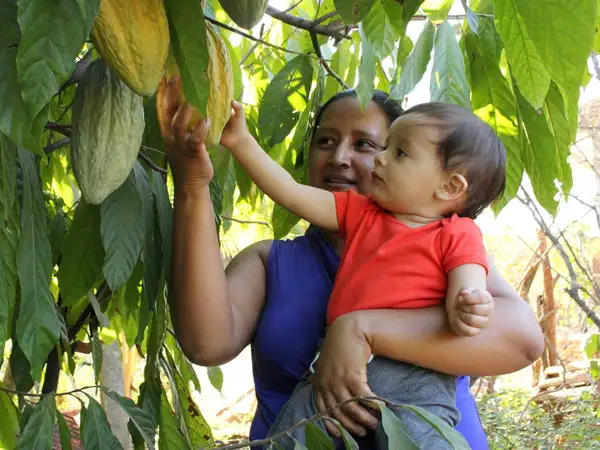
What we do
CAFOD is the official aid agency for the Catholic Church in England and Wales.
With your help, we reach out to people living in hard-to-reach places, in war zones and those who are discriminated against.


